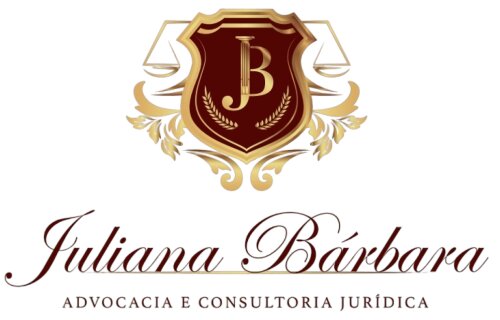Best Restructuring & Insolvency Lawyers in Brazil
Share your needs with us, get contacted by law firms.
Free. Takes 2 min.
Or refine your search by selecting a city:
List of the best lawyers in Brazil
About Restructuring & Insolvency Law in Brazil
Restructuring and insolvency law in Brazil is focused on providing solutions for individuals and companies facing financial distress. The legal framework aims to balance the need to protect creditors' rights with the potential for debtors to recover their businesses and financial stability. The main goals are to facilitate economic recovery, preserve jobs, and ensure that creditors receive fair treatment throughout any insolvency or restructuring process.
Brazilian law offers several mechanisms for addressing financial distress, such as judicial reorganization (recuperação judicial), extrajudicial reorganization (recuperação extrajudicial), and bankruptcy (falência). These proceedings are governed primarily by Law No. 11,101/2005, also known as the Brazilian Bankruptcy and Restructuring Law, which underwent significant reforms in 2020 to modernize processes and encourage business recovery.
Why You May Need a Lawyer
Restructuring and insolvency scenarios can be highly complex and require careful navigation of Brazilian legal procedures. People may need a lawyer in circumstances such as:
- Businesses facing cash flow shortages and unable to meet financial obligations
- Creditors struggling to recover debts from financially distressed debtors
- Shareholders concerned about the impact of insolvency on their interests
- Executives or board members needing guidance on legal responsibilities and risks
- Individuals seeking alternatives to bankruptcy
- Parties involved in mergers, acquisitions, or asset-purchase deals affected by restructuring
A lawyer can help analyze financial risks, design restructuring plans, guide negotiation with creditors, represent stakeholders in court, and ensure compliance with all statutory requirements.
Local Laws Overview
Key aspects of Brazilian law relevant to restructuring and insolvency include:
- Bankruptcy (Falência): Initiated when a debtor is unable to pay creditors. The company’s assets are liquidated and distributed to creditors according to legal priorities.
- Judicial Reorganization (Recuperação Judicial): Enables companies to present a recovery plan to creditors for approval, under judicial supervision. If approved, the company obtains breathing space to restructure debts and operations.
- Extrajudicial Reorganization (Recuperação Extrajudicial): A more flexible, out-of-court process in which the debtor negotiates directly with certain creditors to restructure debts, later seeking judicial ratification of the agreement.
- Creditor Priorities: The law stipulates the order in which creditors are paid, usually favoring secured creditors, followed by labor and tax claims.
- Stay of Proceedings: When judicial reorganization is filed, most collection actions are suspended for 180 days to allow negotiations.
- Personal Bankruptcy: Brazilian law does not provide for personal bankruptcy in the same way as for companies, but there are related procedures for individuals depending on their situation.
- Recent Reforms: Modernizations in recent years have made cross-border insolvency, debtor-in-possession financing, and electronic processes more accessible within the Brazilian legal system.
Frequently Asked Questions
What is judicial reorganization in Brazil?
Judicial reorganization is a court-supervised process that allows a financially distressed company to propose a recovery plan to creditors. This plan may include debt reduction, payment extensions, or asset sales, designed to preserve the business and jobs while repaying creditors.
How is bankruptcy declared in Brazil?
Bankruptcy is declared by a court after a creditor or the debtor files for it, and the court confirms the company is unable to pay its debts or has committed acts of bankruptcy. The company’s assets are then liquidated and proceeds distributed among creditors.
What role do creditors play in a restructuring process?
Creditors can approve or reject restructuring plans during a judicial reorganization. They are grouped by the type of claim (labor, secured, unsecured, or microenterprise) and vote on the proposed plan at a creditors’ meeting.
Are employees’ claims protected in bankruptcy?
Yes. Brazilian law prioritizes labor claims, placing workers among the first in line during the distribution of assets in bankruptcy proceedings, subject to specific caps determined by law.
Can a small business apply for judicial reorganization?
Yes. Micro and small businesses can access judicial reorganization under a simplified process, allowing for reduced bureaucracy and tailored solutions.
What is extrajudicial reorganization?
Extrajudicial reorganization is an out-of-court restructuring process where the debtor negotiates a plan directly with certain groups of creditors and later submits it to the court for approval, streamlining the process compared to full judicial reorganization.
What happens to contracts during bankruptcy or restructuring?
Generally, contracts remain valid, but certain clauses (such as those allowing immediate termination due to insolvency) may be suspended. Essential services and supply contracts must often be maintained to enable business continuity.
Is director or shareholder liability possible?
Company directors, executives or shareholders may be held personally liable if there is evidence of fraud, irregularities, or mismanagement leading to bankruptcy. Otherwise, liability is typically limited.
How long does a judicial reorganization process take?
The duration varies widely, depending on the complexity of the case. Simple cases may resolve within a year, while complex reorganizations with numerous creditors can take several years.
Can foreign creditors participate in Brazilian insolvency proceedings?
Yes. Foreign creditors have the right to participate and vote in restructuring or bankruptcy processes, provided they comply with Brazilian legal procedures.
Additional Resources
For further information or assistance on restructuring and insolvency matters in Brazil, consider contacting:
- Brazilian Bar Association (OAB): Provides legal information and accredits qualified insolvency lawyers.
- National Justice Council (CNJ): Offers updated guidelines and statistics on court-managed insolvency proceedings.
- Commercial Registries (Junta Comercial): Hold official records of company insolvency and restructuring petitions.
- Instituto Brasileiro de Estudos de Recuperação de Empresas (IBR): Promotes study and best practices in business recovery and insolvency.
- Local Courts: State courts (Tribunais de Justiça) manage insolvency proceedings and can provide procedural information.
Next Steps
If you or your business are facing financial hardship or are involved as a creditor in an insolvency situation, consider the following steps:
- Gather all relevant financial and legal documents, including contracts, statements, and correspondence with creditors or debtors.
- Assess the urgency of your situation to determine whether immediate legal protection is required.
- Schedule a consultation with a lawyer who specializes in restructuring and insolvency law in Brazil to receive tailored advice and discuss your options.
- Stay informed about deadlines and procedural requirements to protect your rights throughout any legal process.
- Consider reaching out to professional or governmental organizations for additional guidance or referrals.
Navigating restructuring and insolvency proceedings can be complicated, but with timely legal assistance and an understanding of your options, it is possible to achieve an optimal outcome and secure your financial future.
Lawzana helps you find the best lawyers and law firms in Brazil through a curated and pre-screened list of qualified legal professionals. Our platform offers rankings and detailed profiles of attorneys and law firms, allowing you to compare based on practice areas, including Restructuring & Insolvency, experience, and client feedback.
Each profile includes a description of the firm's areas of practice, client reviews, team members and partners, year of establishment, spoken languages, office locations, contact information, social media presence, and any published articles or resources. Most firms on our platform speak English and are experienced in both local and international legal matters.
Get a quote from top-rated law firms in Brazil — quickly, securely, and without unnecessary hassle.
Disclaimer:
The information provided on this page is for general informational purposes only and does not constitute legal advice. While we strive to ensure the accuracy and relevance of the content, legal information may change over time, and interpretations of the law can vary. You should always consult with a qualified legal professional for advice specific to your situation.
We disclaim all liability for actions taken or not taken based on the content of this page. If you believe any information is incorrect or outdated, please contact us, and we will review and update it where appropriate.
Browse restructuring & insolvency law firms by city in Brazil
Refine your search by selecting a city.















